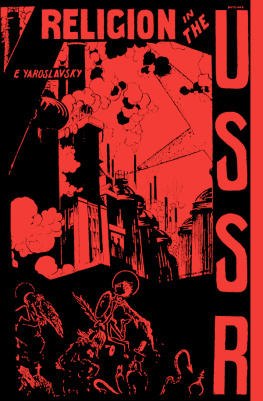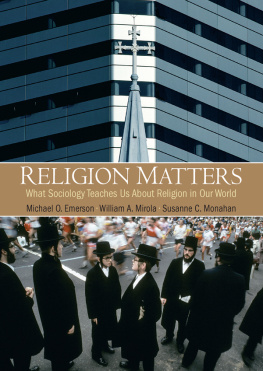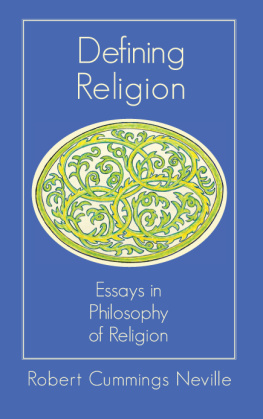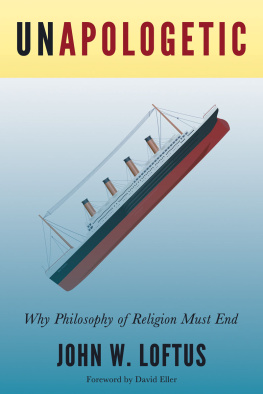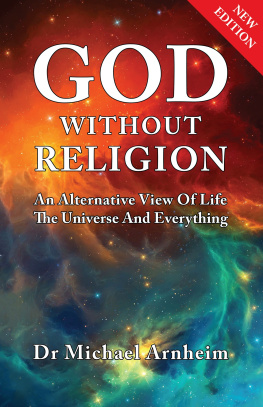Yemelyan Yaroslavsky - Religion in the U.S.S.R.
Here you can read online Yemelyan Yaroslavsky - Religion in the U.S.S.R. full text of the book (entire story) in english for free. Download pdf and epub, get meaning, cover and reviews about this ebook. City: New York, year: 1934, publisher: International Publishers, genre: History. Description of the work, (preface) as well as reviews are available. Best literature library LitArk.com created for fans of good reading and offers a wide selection of genres:
Romance novel
Science fiction
Adventure
Detective
Science
History
Home and family
Prose
Art
Politics
Computer
Non-fiction
Religion
Business
Children
Humor
Choose a favorite category and find really read worthwhile books. Enjoy immersion in the world of imagination, feel the emotions of the characters or learn something new for yourself, make an fascinating discovery.
- Book:Religion in the U.S.S.R.
- Author:
- Publisher:International Publishers
- Genre:
- Year:1934
- City:New York
- Rating:5 / 5
- Favourites:Add to favourites
- Your mark:
- 100
- 1
- 2
- 3
- 4
- 5
Religion in the U.S.S.R.: summary, description and annotation
We offer to read an annotation, description, summary or preface (depends on what the author of the book "Religion in the U.S.S.R." wrote himself). If you haven't found the necessary information about the book — write in the comments, we will try to find it.
Religion in the U.S.S.R. — read online for free the complete book (whole text) full work
Below is the text of the book, divided by pages. System saving the place of the last page read, allows you to conveniently read the book "Religion in the U.S.S.R." online for free, without having to search again every time where you left off. Put a bookmark, and you can go to the page where you finished reading at any time.
Font size:
Interval:
Bookmark:
By
E. Yaroslavsky
PRESIDENT OF THE LEAGUE OF MILITANT
ATHEISTS OF THE SOVIET UNION
INTERNATIONAL PUBLISHERS
NEW YORK
Copyright, 1934
International Publishers Co., Inc.
Printed in the U.S.A.
THIS BOOK IS COMPOSED AND PRINTED BY UNION LABOR
The epoch-making changes which are taking place in all branches of the national economy in the U.S.S.R. must necessarily be accompanied by correspondingly sharp changes in the ideology of the great masses.
The soil that fostered the ideology of the Russian workers in the period of tsarist reaction is now being deeply plowed up by lumbering tractors on the collective and state farms; the choicest seeds of Leninism are being sown on a vast expanse of territory stretching over one-sixth of the surface of the globe. Years of stubborn and persistent toil have prepared this soil to receive this seed. Now that the sowers have grown up, have been trained and prepared for their task, we garner the rich harvest they sowed. Witness the mass anti-religious movement, which is one of the consequences of the enormous social-economic changes which are taking place in our country.
The program of our Party says:
The Communist Party of the Soviet Union is guided by the conviction that only the conscious and deliberate planning of all the social and economic activities of the masses will cause religious prejudices to die out completely. The Party stands for the complete dissolution of the ties between the exploiting classes and organized religious propaganda, and facilitates the real emancipation of the working masses from religious prejudices by organizing the widest possible scientific, educational and anti-religious propaganda.
Thus religious beliefs will be destroyed not primarily by antireligious propaganda, but by "the conscious and deliberate planning of all the social and economic activities of the masses."
This does not imply that the Party should or does ignore the use of anti-religious propaganda, which helps to form the new atheist conceptions of the broad toiling masses. The basis of this movement, however, rests on the fact that the working class is winning in its struggle against the capitalist forms of economythat the working class is rebuilding the whole of the country in accordance with socialist ideasthat it is not the old Russia, but the workers, the most suitable standard-bearers of atheism, the leaders of the socialist revolution, who are building giant state farms, who are building the mighty Dnieper Dam and the large tractor works, who are marching to victory despite the malevolent plotting of the exploiters of all the world. The Pyatiletka (Five-Year Plan) in the realm of construction embodies that "conscious and deliberate planning of all the social and economic activities of the masses" which the party program refers to as the greatest force which will bring in its wake "the dying-out of religious prejudices."
Under the leadership and influence of the proletariat, the peasants are turning to a new form of economy, socialized economy. More and more we find them adopting the new technique and freeing themselves from and subduing the dominion of the elemental forces of nature.
These victories over nature, over these elemental forces, are of paramount importance in the work of freeing the great peasant masses from the stupefying influence of religion. In a few more years the masses of peasants organized in the collective and state farms will, with the use of the mighty technique of the proletarian state and with the help of the mighty fertilizers at work upon new and hitherto untilled fields, be able to free themselves from the last remnants of the influence of religion which the exploiters had almost indelibly imprinted on their minds in the course of centuries.
It must be pointed out that in this process, the cultural revolution, the logical concomitant of all these profound changes in the national economy of our country, plays a very important part.
Take for example the Christmas holidays, December 25, 26 and 27. In the village of Borodino, the peasants arranged a mass festival of socialist culture. About two thousand people, poor and middle peasants, came from all parts of the country and without a single dissenting voice closed down two of the three churches in the village. They installed machinery in one church and turned it into a collective farm mill; in the other they opened up a home for socialist culture with a number of assembly rooms, a library, rooms for study circles, moving pictures and radio.
But all this was made possible only because the peasant masses had joined this mighty movement and because of the influence of the mass collectivization of the farms in this region.
Illiteracy has been almost completely wiped out in this village, and two-thirds of the adult population regularly visit the village reading room. This room was set up without a single kopek being spent by the state, as was also an elementary school, another school for knitting and sewing, a living newspaper, a Young Pioneer detachment, a crche for babies, and a library. Out of every three homes, two subscribe to newspapers, and in every home there are two who go to the library. This is something entirely new in the Russian village. Here they are making short shrift with all the vestiges of the old rgime.
Hand-in-hand with this work of reconstructing our economy, we are making great progress in remolding the consciousness of the masses. We see in this an assurance that the work of the atheists will be crowned with success and this explains why militant atheism has become not only a mass movement in the cities, but throughout the whole countryside.
This is of tremendous significance in view of the fact that all our work towards carrying out the Pyatiletkathe industrialization of the country, the collectivization of agriculture, as well as our entire cultural revolutiondeals a crushing blow to all exploiters and to their influence over the toiling peasant masses. This is why our Party finds it easier sailing now than at any time before "to completely dissolve the ties," as our program reads, "between the exploiting classes and organized religious propaganda." The collective farmers will not go to the priest to ask him to propitiate the deity by offering up a prayer to the prophet Elijah or some other saint in the calendar. They will rely solely on the village proletariat to improve the conditions of their work, to combat drought and other elemental forces of nature which affect the well-being of the masses.
A gigantic movement against religious organizations is going on in the collective farms, in favor of dropping out of religious societies, of removing church bells, closing down churches and remodeling them to meet the new secular-cultural requirements of the masses. Only a few months ago, this movement bore an entirely different character. Indeed, before our very eyes, quantity has been transformed into quality. There is not the slightest doubt that these two "fronts" on which we workthe destruction of the material roots of religion, and atheist propagandaare evidences of the many-sided activities of the proletariat which, in the aggregate, seeks not only to explain the world, but to remake it.
Lenin, as early as 1909, pointed out in his article, "The Attitude of the Workers' Party Towards Religion," that:
To draw a hard and fast line between the theoretical propagation of atheism, between breaking down the religious beliefs of certain sections of the proletariat, and the effect, the development, the general implications of the class struggle of these sections, is to reason non-dialecticallyto transform a variable, relative boundary into an absolute one. It is a forcible tearing asunder of that which is indissolubly connected in reality.
Font size:
Interval:
Bookmark:
Similar books «Religion in the U.S.S.R.»
Look at similar books to Religion in the U.S.S.R.. We have selected literature similar in name and meaning in the hope of providing readers with more options to find new, interesting, not yet read works.
Discussion, reviews of the book Religion in the U.S.S.R. and just readers' own opinions. Leave your comments, write what you think about the work, its meaning or the main characters. Specify what exactly you liked and what you didn't like, and why you think so.

